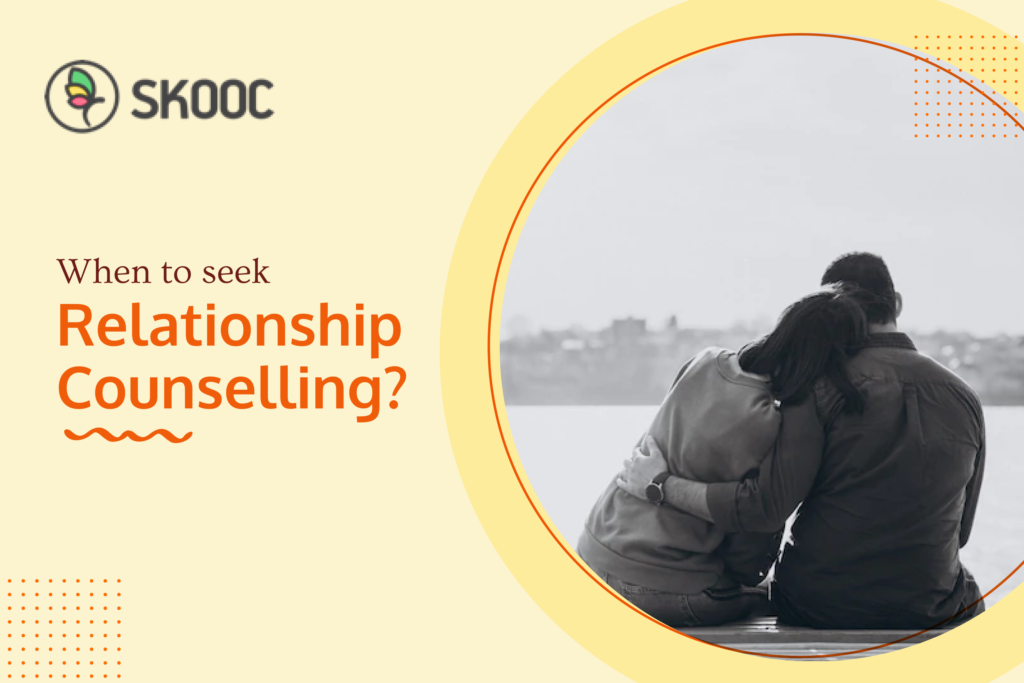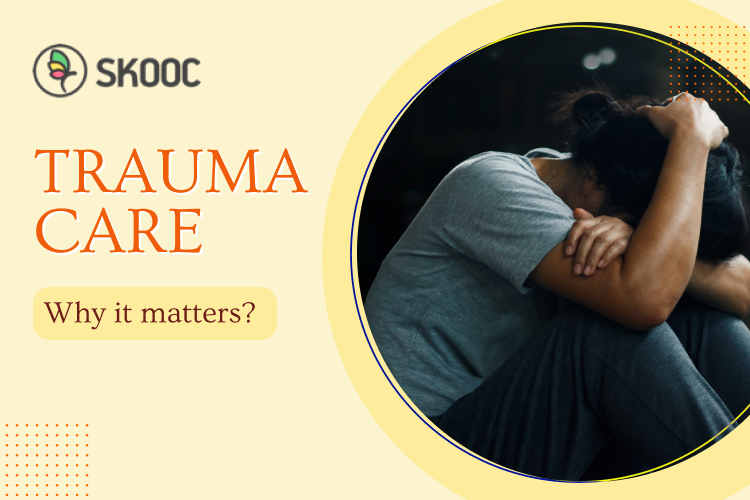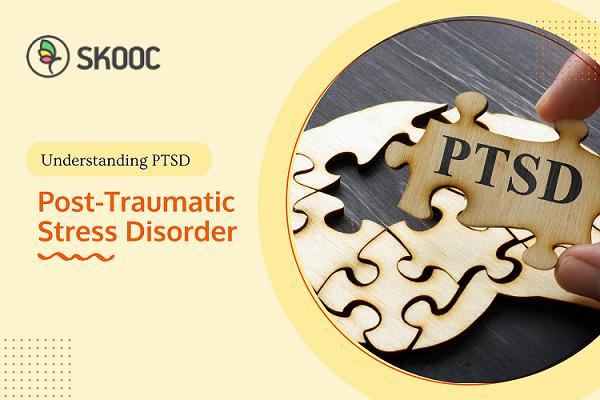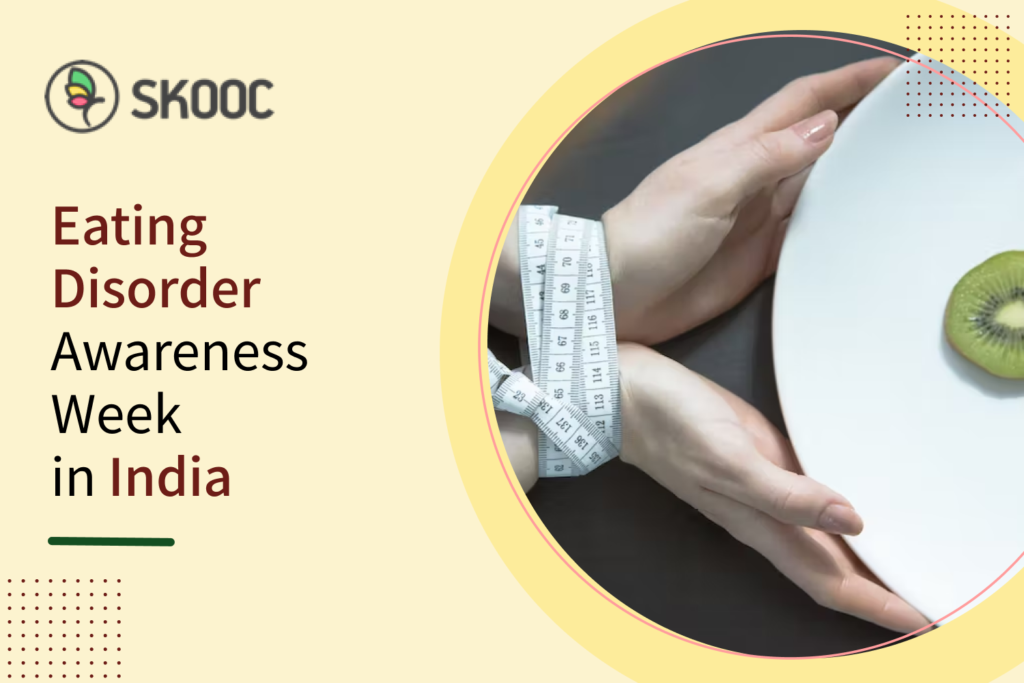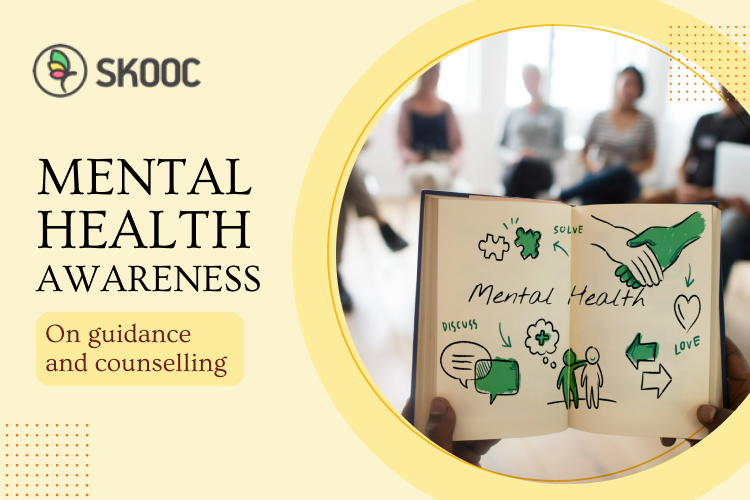
More than 56 million Indians suffer from mental conditions, including children, teenagers, and adults. People who are combating mental health may be members of your family, neighbours, coworkers, or someone who travels in the public vehicle as you.
Only half of the people facing the impact, however, receive treatment, often as a result of the prevalent social stigma with mental health. As a mental health clinic, we at Skooc believe promoting mental health awareness can assist in understanding symptoms, seeking guidance and counselling, and, perhaps most importantly, eradicating the stigma associated with mental illness.
Mental Health Awareness and Counselling
Mental health is a crucial aspect of overall well-being and it is just as important as physical health. It signifies a person’s emotional trigger points, psychological reactions and overall social well-being. Mental health plays a major role in determining how we think, feel, and behave. Many people experience mental health challenges at some point in their lives and they can manifest in different forms, such as anxiety, depression, or addiction.
Mental health issues can have a significant impact on an individual’s, quality of life, relationships, and ability to function, irrespective of their age. It can also take a toll on society as a whole, leading to increased healthcare costs, lost productivity, and increased crime rates.
Raising awareness about mental health is essential to reducing the stigma surrounding mental illness and encouraging people to seek help when they need it. By understanding the importance of mental health and how to support it, we can create a more supportive and inclusive society for everyone.
Myths and Stereotypes about mental health
Numerous myths and prejudices regarding mental health exist, and they can contribute to stigmatization and make it challenging for people to get the care they need. Some of the most typical fallacies include:
Mental condition is a sign of weakness: As myth suggests, people struggling with mental illness are weak, slothful, or lack willpower. Reality: However, in actuality, it isn’t a flaw, but rather a medical ailment that can afflict anyone.
Only a few people experience mental conditions: However, in reality, the numbers speak volumes. As aforementioned, millions in India suffer from one mental condition or the other.
Violence is a symptom of mental illness: As far as myths go, this one is detrimental as well as inaccurate. In actuality, those who suffer from mental illness are more likely to be attacked than to commit acts of violence.
Mental conditions can be solved by willpower: The truth is, mental illness is a medical condition that necessitates professional care from a counselling psychologist.
People suffering from mental conditions need to pull themselves together: The truth is that mental illness requires guidance and counselling it cannot be easily repaired or cured.
It’s crucial to realise that mental health is complicated and that many various factors might influence it. To lessen the stigma associated with mental illness and to encourage people to seek out guidance and counselling, it is crucial to debunk these myths and stereotypes.
What is Mental Health Awareness?
Public education on mental health is facilitated by mental health awareness. It teaches children, and adults that discussing experiences, vulnerabilities, and common worries around mental health problems is acceptable. Many more people will benefit if the stigma associated with mental health is lessened. They will comprehend that mental illness is treatable as a result. As more people become aware, more people seek assistance. Awareness is helpful to anyone who manages their mental health issues. This covers those with conditions like bipolar disorder, PTSD, anxiety, and despair. More people will be able to ask for assistance when they feel alone, lonely, or desperate if the stigma is broken.
Why is Mental Health Awareness necessary?
Conversations promoting mental health awareness are the cornerstone for eradicating the stigma associated with mental illness. There are many advantages to educating yourself and others about the various facets of mental health. It helps you stay focused on your issues. Additionally, it strengthens the support for friends, coworkers, and family members who might be dealing with their mental illness. 
Many individuals are unsure about how to discuss it. Their capacity to communicate and open up increases with awareness. Understanding mental health issues are essential for comprehending your symptoms. You discover that asking for assistance is acceptable. Start by discussing your worries with your doctor. Giving others the chance to hear about your experiences allows them to support you. They might also express themselves about their problems. This allows you to encourage and assist them. Undoubtedly, awareness is a two-way street.
Why is Mental Health Awareness important?
Whether or not someone is suffering from mental conditions, Mental Health Awareness makes people sound about the various mental illnesses and how it affects their life, informs them of the various counselling options available, and sheds light on advocacy strategies.
The misconceptions entwined with mental illness can be diminished via education, awareness and recognition. With the help of Mental Health Awareness, a conversation can be started. Communicating openly about mental health, and the impact it has can help dispel those misconceptions, as well as encourage those who are stumbling to get assistance or consider seeking out a counselling psychologist.
It’s critical for loved ones, friends, and caretakers to comprehend how mental health affects daily living. The purpose of Mental Health Awareness is to raise awareness and bring out the realities to light. It raises the conditions of living with a mental health illness, how it can make life more challenging and that this need not prevent a person from leading a happy and fulfilled life. People who are more acquainted with these troubles are better able to support and administer to those who are struggling with mental health issues.
Guidance and Counselling at Skooc
At Skooc, we believe in a holistic approach to providing guidance and counselling for children, teens and adults. 
At Skooc, you can get in touch with any counselling psychologist in our team of experts. We aim to help people you love to feel at their best. 
